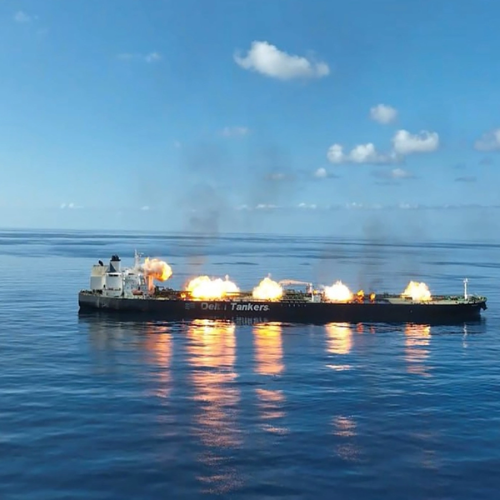Recent intelligence reports from the United States have revealed a troubling connection between China and Yemen’s Houthi rebels. The Houthis, backed by Iran, are using Chinese-made weapons to carry out attacks on shipping in the Red Sea. In return, they have reportedly agreed not to target Chinese vessels. This alarming exchange began after Houthi leaders traveled to China in 2023 and 2024 to establish a direct supply chain for weapons and advanced technology.
The weapons provided by China include advanced missile-guidance systems and components. These items have enabled the Houthis to produce a large number of cruise missiles, with the capability to strike oil-rich Persian Gulf states. These missiles could disrupt critical global energy supplies, heightening tensions across the Middle East and beyond.
The Houthis’ access to such technology is seen as a major step forward in their military capabilities. By securing Chinese support, they have expanded their arsenal, creating a more significant threat to both regional and international security.
While the Red Sea has become a dangerous zone for many shipping vessels, Chinese-linked ships appear to navigate these waters relatively unharmed. Maritime data confirms that vessels associated with China continue to pass through this critical shipping lane without being targeted by the Houthis.
Houthi Rebels Target Commercial Shipping in the Red Sea Amid Regional Conflict
The Houthis’ decision to spare Chinese vessels is believed to be tied to the strong relationship between China and Iran, which is the Houthis’ primary backer. Iran relies heavily on China as its top buyer of oil, with approximately 90% of its oil exports going to Chinese markets. This economic partnership appears to have influenced the Houthis’ strategy in the Red Sea, as sparing Chinese ships ensures continued support from their Iranian allies.
However, this unofficial agreement has not been without mistakes. In March 2024, a Houthi missile strike accidentally hit a China-linked oil tanker. This rare incident highlighted the unpredictable nature of the conflict and the risks faced by even those who seem to be exempt from Houthi attacks.
For other nations, the situation in the Red Sea remains perilous. The Houthis have shown no hesitation in targeting commercial ships from other countries, causing disruptions to global trade and energy shipments. Their actions pose a growing threat to one of the world’s busiest and most important waterways.
U.S. Sanctions on Chinese Companies
The United States has taken action against China for its role in arming the Houthis. In October 2024, the U.S. imposed sanctions on two Chinese companies, Shenzhen Rion Technology Co., Ltd. and Shenzhen Jinghon Electronics Limited. These companies were accused of providing critical “dual-use” components that enhanced the Houthis’ ability to produce advanced missiles and drones.
Yemen’s Houthi Forces and Advanced Iranian Weapons Fuel Unrest in the Middle East
Dual-use components are items that have both civilian and military applications. While companies may claim these components are for non-military purposes, intelligence sources have confirmed their role in advancing the Houthis’ military capabilities.
The components supplied by these companies have allowed the Houthis to manufacture weapons domestically, reducing their reliance on smuggling routes and making them more self-sufficient in warfare. This has emboldened the Houthis to intensify their attacks on shipping in the Red Sea, targeting vessels from various nations and causing significant economic disruptions.
The sanctions placed on these companies are part of broader efforts by the U.S. to curb the spread of weapons in the region. However, the impact of these sanctions remains unclear, as the Houthis continue to access advanced weaponry and carry out attacks with little sign of slowing down.
China’s role in arming the Houthis underscores the dangerous dynamics fueling conflicts in the Middle East. With weapons and technology flowing into Yemen, the Houthis have grown more capable of threatening global trade and energy supplies. While Chinese-linked vessels appear to enjoy safe passage, others face increasing risks in one of the world’s most vital shipping routes. The consequences of these developments are felt far beyond the Red Sea, as the conflict continues to disrupt international stability and security.


